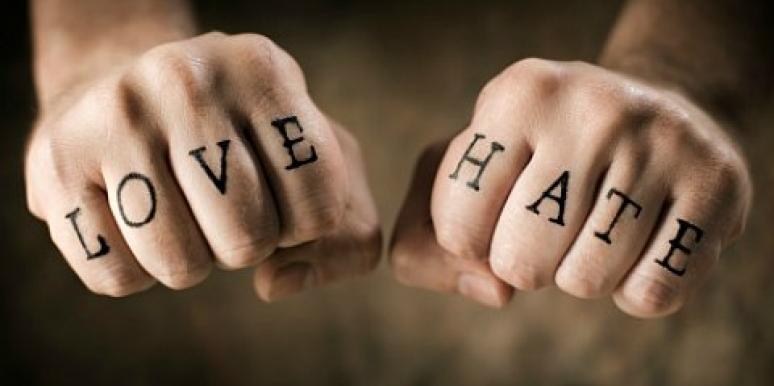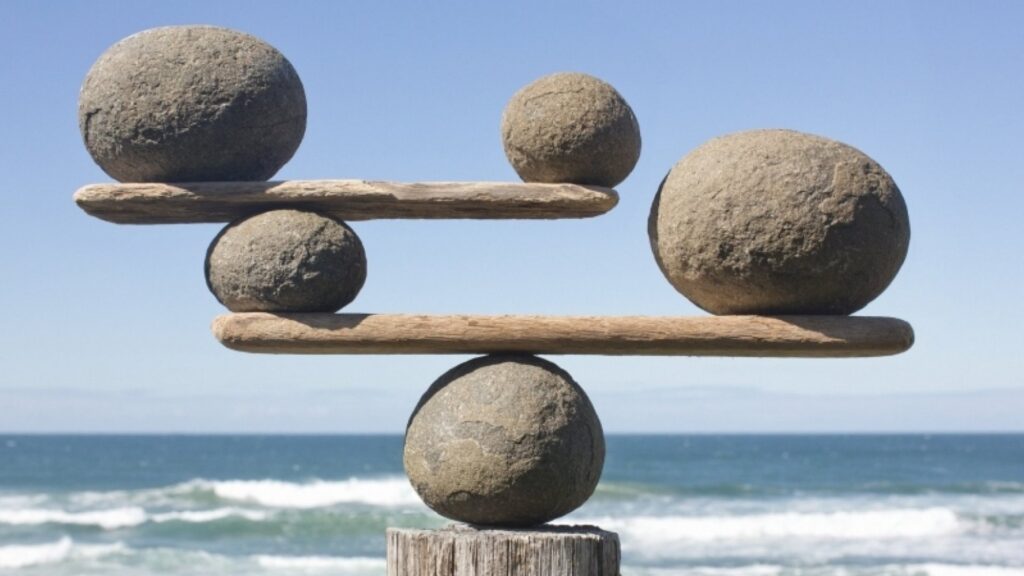Men vs women is a centuries-old debate.
Throughout history, it may appear men hate more in opposition with the dominance of men’s power in the world, wars fought primarily by men, domestic violence against women, and let’s not forget about testosterone.
Something that women seem to be better at than men: opposing without hatred.
~Sir Mark Rylance, the Oscars, Feb 2017
When I first heard these words, it did seem like women were better at avoiding hatred.
According to the Mayo Clinic, the normal testosterone range for the average adult male is 270-1070 ng/dL compared to only 15-70 ng/dL for females.
Aggression is hormonally influenced.
But does one gender actually hate more, or have women simply had to suppress their opposition given their relative lack of power, and resources available to them?
Look around your own life – do the men you know hate more than the women?
Cultural, social, and economic factors obviously play a huge role, but there are significant differences between how men, and women handle opposition.
When it comes to men vs women, we are wired differently.
Men can brawl in a sport, or shout with their egos in the boardroom, and when it’s over walk away with no hate. It’s as if that moment was simply part of dealing with the issue at hand, and they move on.
How often have you known a man to hang onto resentment or bring up the past in excruciating detail the way a woman can?
You’ve probably noticed how men generally don’t feel the level of guilt women do as a response to internal opposition. “Mommy guilt” runs rampant, but daddy guilt? Not so much. It’s not because men care less about their children!
And what about the gossip, and sheer nastiness that goes on among women in opposition that doesn’t appear to be the way most men oppose each other?
If you missed this 10-minute video clip on men vs women – funny & insightful on our differences!
The reality is aggressiveness is not necessarily destructive. We need this quality to defend ourselves if we’re being attacked, or someone tries to take advantage of us.
It’s desirable in situations calling for immediate action or competitive environments where getting results is the name of the game.
It just can’t be at the cost of hate, which leads to drama, violence, and broken relationships. Even murder.
How do we move from aggression to hate? It seems we’re seeing hate, and chaos more these days. What is going on when whole countries are divided?
The Missing Link
Hate is really extreme anger against someone you are condemning. It’s the energy you hold when you are judging someone. We all have situations where someone has wronged us where its reasonable to defend ourselves, and we absolutely need to do that.
But when you become defensive, and attacking – you are taking your own hate and using it to judge someone back.
How do you oppose without hatred when you’ve been attacked unjustly?
It’s not easy.
There’s a new collective consciousness we’re seeing worldwide:
A lot of us are familiar with the psychological construct of narcissism as applied to an individual: someone who is grandiose and overconfident on the outside, but needy and vulnerable underneath.
But collective narcissism is something different: it is when someone exhibits an exaggerated belief in the superiority of their in-group, be that a gang, religion or nation, but deep down feels doubtful about their group’s prestige and therefore craves its recognition by others.
Vulnerability from a sense of neediness arises from self-worth that’s been hurt. It can lead to controlling others, blame, and attacking behaviour.
Where does it originate?
Imagine if you depended on someone who wasn’t there leaving you feeling abandoned. What if you trusted someone who betrayed you? Have you ever felt shamed by someone that wasn’t your fault?
What if these experiences were not a one-time thing, but part your past, splashed with ongoing current experiences with the people closest to you?
These painful situations create genuine hurt, and damages self-worth. It’s a cycle that sadly gets passed from one generation to the next.
Two invisible walls go up.
1. The wall between you as the innocent victim seeking justice, and the destructive ego that tries initially to protect you, but ends up condemning you.
An inner judge forms: a punishing internal voice confirming you’re not good enough. It’s a battle now within: you against you.
2. There’s also the wall between you (the innocent victim that becomes needy) and anyone who triggers previous attacks, which naturally seeks to control.
The inner judge warns “don’t you dare do that to me again!” Things get taken personally, there’s over-reaction, and defensive behavior.
Have you ever felt yourself walking on eggshells around someone? Their energy feels fragile where you exercise caution to avoid a potential attack or a sudden withdrawal for no apparent reason.
When I’ve been attacked, and allowed feelings of betrayal to overcome me – I’ve felt anger that’s turned to hatred I can justify. But I created it because in that moment I’ve made myself a victim to someone else’s destructive choices.
I believed someone else’s truth that wasn’t my own. That’s when I could practice letting my own judgment go. You can let go of other people’s judgment knowing that’s their responsibility, and personal choice, not yours. Besides, it’s out of your control how someone chooses to behave.
If you’ve come across anyone who lashes out with insults, arrogance, or interruptions followed by repetitions of “I’m a nice guy”- their invisible walls are up.
There’s an inability to distinguish “reasonable anger” where you gain the strength to stand up for yourself versus “attacking anger” that’s really hurt turning to hate.
How do you make those invisible walls visible?
- express any genuine anger from your past with people you can trust – releasing this energy heals your mind, body, and spirit
- develop a maturity that goes beyond self-importance seeking praise, and validation from others to feel good enough without justifying attacking behaviour
- do not accept anyone’s attack of you – no thank you is an option
- seek to understand and listen more with kindness, and compassion including with yourself
- become conscious of any attacking energy you may be sending by noticing any defensive behaviour coming back
- avoid victim-minded people (those who complain, blame, and need to control) because their energy will bring the same energy out in you keeping you stuck
When each person can learn how to oppose without hatred by recognizing and healing their own sense of abandonment, betrayal, or shame, we can let down the walls of judgment. We all seem to experience either fragments or full-blown tragedies of these painful hurts.
It’s not a gender issue. It’s whether we choose to hate in opposition.
Hatred poisons the soul where you no longer see someone’s humanity – it blocks the flow of love.
Here’s to the ones who dream, foolish as they may seem.
Here’s to the heart that aches; here’s to the mess we make.
~ Hurwitz & de Vries, La La Land
Imagine: a judgment-free world where there is no men vs women.




